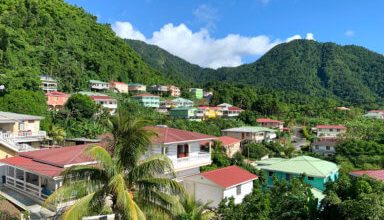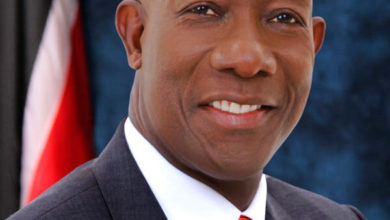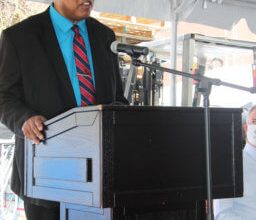DUTCH SLAVERY APOLOGY

Widespread reporting out of The Netherlands and in Suriname are pointing to plans by the Dutch government to formally apologize for the horrors of the trans Atlantic slave trade and to make a first compensation down payment of just over Euros 220 million.
The idea is, according to several leading publications and a local news agency, will be issued before former Dutch colony, Suriname, and other existing protectorates in the Caribbean, observe the 150 anniversary of the abolition of the slave trade by The Dutch next year. It could even come before year end officials say.
The impending move to say that The Dutch is sorry for its brutal and genocidal role in the business of enslavement, will come in the wake of a September visit to Suriname by Dutch Prime Minister, Mark Rutte and that of a multiparty delegation of lawmakers to the Caribbean Community nation in August. That delegation had also hopped over to some of the Dutch colonies in the Caribbean like Curacao where they were given a mouthful about the lingering effects of slavery, particularly in areas like chronic diseases affecting the descendants of slavery.
Reacting this week, Prime Minister of Curacao Gilmar Pisas says he hopes that the apology is not insincere and platitudinal, noting that some form of contributions to repair the various levels of damage on affected members of the population should also suffice, he told the Chronicle newspaper.
“These apologies will be of substantial significance for the emancipatory development of Curaçao.”
After all, almost a century after the formal abolition of slavery, the colonial administration was still actively present and responsible. The structure of government, and especially what purposes that government served even without the instrument of slavery, has continued to influence our ability to work on the development of our country, within the framework of the universal legal order of the United Nations,” he said.
The Dutch team of lawmakers who had made it clear their visit was a fact finding one to determine how locals felt, has recommended that the formal apology be made as members had hinted even before leaving Suriname.
And before Rutte had set even foot in Paramaribo, he had oft times argued that an apology was “not a good idea” at this time but he appears to have been weighed down by growing calls for such a move, calls in a throne speech by King Willem Alexander that mention the need to make up for the bad of the slave trading era. Reflecting his change of heart, Rutte said recently that the time had indeed come for The Netherlands to “take the next step” even as the King was being blunt about how the issue should be handled.
“As we approach next year’s 150th anniversary of the abolition of slavery, we need to acknowledge this part of our history,” the King said. “If we want a society where there is no place for racism and discrimination, where everyone feels heard and appreciated, we must openly reflect on the less pleasant chapters in our history. By engaging in a dialogue about the past, the government hopes to foster necessary recognition, and help people connect with each other,” he said.
Additionally, outlets like NL Times and Fortune.Com, ANP are alo reporting that a special fund of Euros 200 million will be set aside to create awareness, improve the delivery of education, while an additional 27 million is expected to be budgeted for a slavery museum and memorial in Suriname.
Rights groups argue that if The Dutch follow through with the plans being reported, The Netherlands will be the first among European former slave trading nations not only to apologize but to set aside money as a start in dealing with compensation for the genocide against Africans. Demands for reparations have gained significant traction in the context of the Black Lives Matter movement. Britain has already been forced to pay Kenyan tribesmen for mass murders committed by troops during the colonial era. Caribbean governments have hired the same firm which fought for the tribesmen to engage European governments. The British attorneys say the region has an extremely strong case to make.
As all eyes are now on The Hague’s next move, The umbrella Caribbean Reparations Commission and other groups have taken note of a move by Canada to set aside Canadian $40 billion to compensate indigenous peoples for separating families and other atrocities Fortune.Com is reporting.
It also stated that a number of Dutch cities commercial banks and other entities have already issued apologies for their role in supporting plantation life, participating as shippers and insurers of Dutch slavery business in the West Indies.




